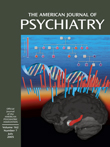Generalizability of Antidepressant Efficacy Trials: Differences Between Depressed Psychiatric Outpatients Who Would or Would Not Qualify for an Efficacy Trial
Abstract
OBJECTIVE: In recent years the generalizability of antidepressant efficacy trials has been questioned. Central to the question of generalizability is whether there are differences in clinical, demographic, and psychosocial characteristics between patients who would qualify for an antidepressant efficacy trial and those who would not qualify. METHOD: The authors compared three groups: 123 depressed patients who would qualify for an antidepressant efficacy trial, 289 whose symptom severity was too mild to qualify for an antidepressant efficacy trial, and 187 who would be excluded because they were suicidal or had a comorbid anxiety or substance use disorder. RESULTS: Compared with patients who would qualify for an antidepressant efficacy trial, patients who would be excluded because of comorbidity or suicidality were a more chronically ill group with more previous episodes, greater psychosocial impairment, and more personality pathology. CONCLUSIONS: These findings support further caution in generalizing the results from antidepressant efficacy trials to clinical populations.



